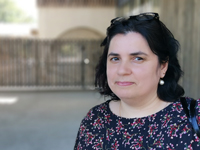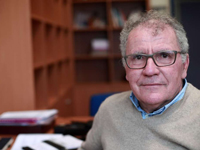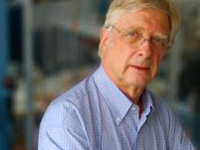For any research project proposal, please use the contact form by selecting the subject "Scientific research".
The research
The research
SUMMARY
The Resource Center for research
The Village has a resource and research center where an experiment is carried out for 5 years co-piloted by the Departmental Council of Landes and the Agence Régionale de Santé Nouvelle-Aquitaine.
The objective is first of all to scientifically demonstrate the validity of the care provided to people with Alzheimer's disease and to their families and those around them; and on the other hand to make the model developed by the Village reproducible on a national, even international scale.
To this end, several lines of research are implemented: study of the quality of the work of professionals, of the life of villagers, caregivers and volunteers; evolution of the social perception of the disease with the general public and general practitioners or even socio-economic analysis of the establishment.
External researchers, French or foreign, can also submit their research project to the scientific committee. If their study is deemed relevant to the disease and adapted to the Village's care model, they will be able to benefit from the resource center for the duration necessary for their study.
Current research projects
Le Village Landais, an innovation in social life, health and research: research program to assess its impact
INSERM
 The question at the heart of this project is whether it is possible to consider the underlying model Village Landais Alzheimer as an alternative model to the EHPAD. Does the Landais Alzheimer village have a positive impact on people's quality of life, their social participation and their health? Does it improve the quality of working life for professionals? Is it based on a viable and reproducible model? What lessons can we learn from this system to improve support for people with Alzheimer's disease who can no longer live at home? All village stakeholders (villagers, relatives of a villager, professional or volunteer) are invited to participate in this research. The research team calls on them 5 times, spaced 6 months apart, in order to collect opinions and experiences within the Landes village through questionnaires or interviews. The research program also includes a medico-economic study which will assess the cost / effectiveness of the establishment.
The question at the heart of this project is whether it is possible to consider the underlying model Village Landais Alzheimer as an alternative model to the EHPAD. Does the Landais Alzheimer village have a positive impact on people's quality of life, their social participation and their health? Does it improve the quality of working life for professionals? Is it based on a viable and reproducible model? What lessons can we learn from this system to improve support for people with Alzheimer's disease who can no longer live at home? All village stakeholders (villagers, relatives of a villager, professional or volunteer) are invited to participate in this research. The research team calls on them 5 times, spaced 6 months apart, in order to collect opinions and experiences within the Landes village through questionnaires or interviews. The research program also includes a medico-economic study which will assess the cost / effectiveness of the establishment.
Line-up: Pr Hélène Amieva, Professeur à l’Université de Bordeaux, spécialité psychogérontologie et épidémiologie, et directrice de l'équipe Inserm - Rachel Estrade, Psychologue spécialisée en psychogérontologie et Santé Publique - Céline Meillon, Biostatisticienne, méthodologiste - Solange Hamelin,Technicien-coordinateur de l’aide psychosociale aux aidants - Marie Sendra, étudiante en Master Psychogérontologie et Santé Publique - Camille Ouvrard-Brouillou, Psychologue Spécialisée en Psychogérontologie et Santé Publique, Maitre de Conférences - Pr Jérôme Wittwer, Economiste de la Santé, Professeur des Universités - Damien Krier, Economiste de la Santé.
Innov'Pad – « Innovative approaches in the support of dependent elderly people: from a regional initiative "Le Village Landais" to national and international perspectives »
Maison des Sciences de l'Homme d'Aquitaine
The Innov'Pad project aims to study innovative initiatives in the support of dependence, in particular for people with Alzheimer's Disease and Related Diseases (LAM), and to understand their genesis, from the decision to Implementation. We are interested in the effects of these innovations on the people received and on their families (daily life with illness, evolution of social relations, relationship to space and places) as well as on professional practices (forms of professional cooperation, hybridization modes of intervention). This qualitative research is carried out on the basis of interviews and observations in the field and falls within the field of Human and Social Sciences. It is a project that is financially supported by the Nouvelle-Aquitaine Region, supported by the Regional Health Agency for a period of 4 years (2019-2023). It is administratively managed by la Maison des Sciences de l'Homme d'Aquitaine.
Line-up: Marie-Laure Pouchadon : enseignant-chercheur en sociologie - Université Bordeaux Montaigne - Laboratoire de recherche Passages - UMR CNRS 5319 - Florence Zerillo : enseignant-chercheur en psychologie – Université Bordeaux Montaigne - Laboratoire de recherche Passages - UMR CNRS 5319 - Philippe Martin : directeur de recherche - COMPTRASEC – Université de Bordeaux - UMR CNRS 5114.
Scientific and ethical committees
Scientific committee

Chaired by Prof. Jean-François Dartigues, Emeritus Professor at the University of Bordeaux, this neurologist and practitioner at the Bordeaux University Hospital
The scientific committee is responsible for monitoring the experiment and supervising the research being carried out at the Village. The committee involves, alongside doctors and researchers, representatives of associations such as France Alzheimer Landes, all those who work in the Village, for a scientific exchange. The committee holds two to three meetings per year and on demand as needed. These meetings are joint with those of the ethics committee. Research in the Village must bring scientific knowledge and be ethically acceptable. More than an advisory mission, the committee drives new research in all areas of aging and Alzheimer's disease. Its role is also to look into the future and see what improvements can be suggested for the operation of the Village. Finally, the committee is also working to disseminate this experience throughout the territory if it proves to be beneficial.
Committee members: Pr Hélène Amieva, Dr Alain Bérard, Pr Bernard Bioulac, Pr Jean-François Dartigues, Pr Bruno Dubois, M. Romain Alexandre, Mme Geneviève Cottavoz, Mme Laura Menatti, Mme Sarah Montero, M. Guillaume Frasca, Mme Marie-Laure Pouchadon, Mme Florence Zerillo.
Ethical committee

Chaired by Prof. Bernard Bioulac, Professor Emeritus at the University of Bordeaux, member of the National Academy of Medicine and former Director of the Bordeaux Institute of Neurosciences
Initially, the ethics committee conducts reflection work in the implementation of the project. In particular, the committee initiated staff training for local ethics in day-to-day operations: how to respect people, talk to them, distribute medicines. It is about doing everything so that she feels that she is still a subject and not an object. The ethics committee is made up of a dozen members: doctors, caregivers, jurists, philosophers, association managers ... It works jointly with the scientific committee, in particular on what may give rise to research. If the studies carried out at the Village show that this structure, which brings you closer to normal life, is more effective than a traditional nursing home, the ethics committee must allow other establishments to benefit from it. The committee is also involved in the case study of Villagers submitted to it by formulating an opinion on a question raised by the establishment team. Families can also refer directly to him, on a question of injustice, a misunderstanding ...
Committee members: Pr Bernard Bioulac, Pr Jean-François Dartigues M. Xavier Dumoulin, M. Bernard Graciannette, Dr Geneviève Pinganaud, Dr Bernard Poch.